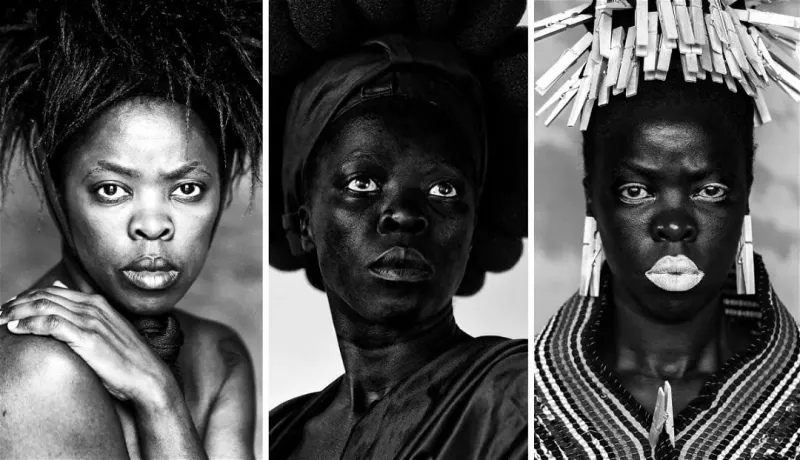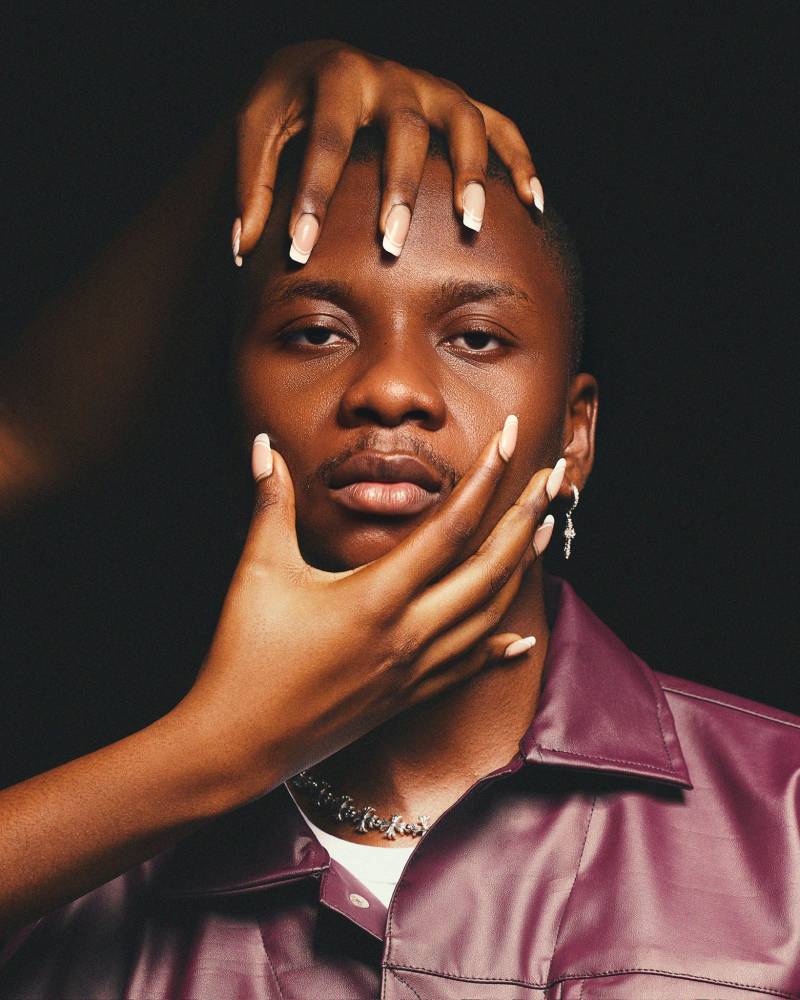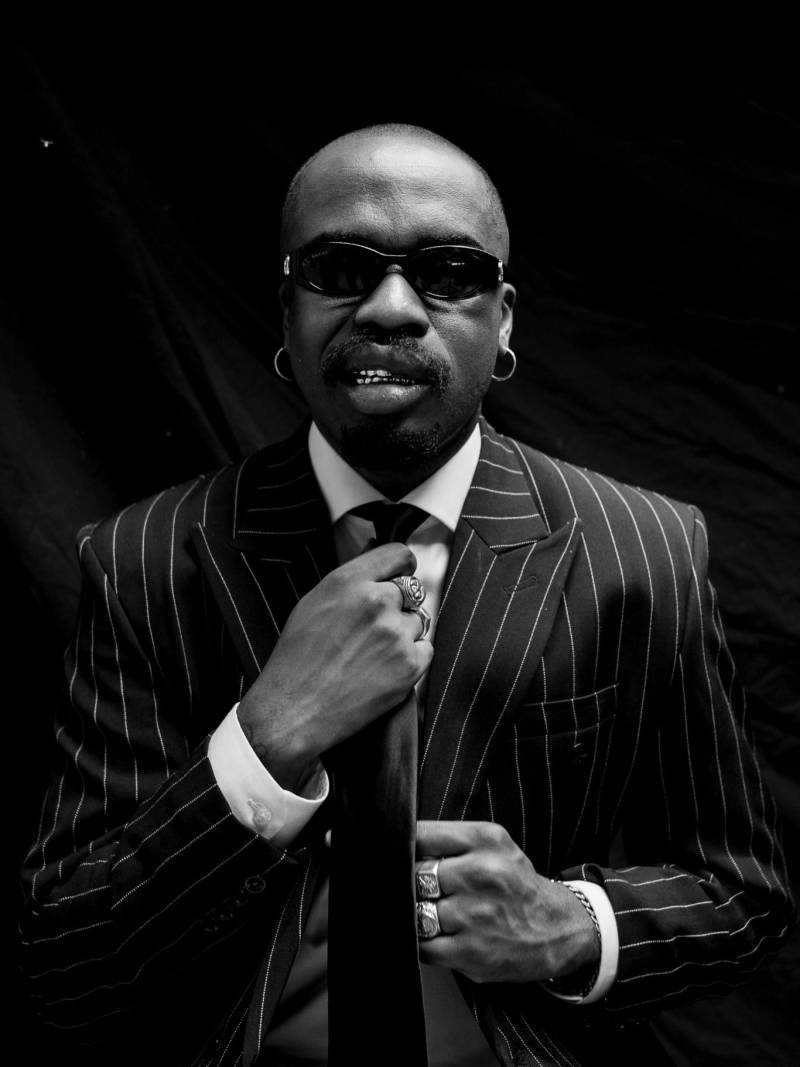Contemporary South African artist Zanele Muholi's work is powerful and thought-provoking. The artist uses her body as a canvas to challenge traditional systems of representation and harmful stereotypes.

There are arguably only a handful of artists working in the contemporary art world today whose work is as visually compelling as that of Zanele Muholi, the self-proclaimed visual activist and photographer. The artist’s award-winning work investigates the fraught relationship between post-apartheid South Africa and its queer community, who, despite being constitutionally protected since 1996, remain a constant target of abuse and discrimination. In Muholi’s own words, their self-appointed mission with the Hail the Dark Lioness series is to “encourage individuals in [the queer] community” to be “brave enough to occupy spaces — brave enough to create without fear of being vilified… To encourage people to use artistic tools such as cameras and weapons to fight back.”

Read Also: Tips You Need To Know Before Moving To Canada
Zanele Muholi (they/them) was born in 1972 in Umlazi, Durban, a township on the East coast of South Africa. The youngest of eight children, their father passed away shortly after Muholi was born, and their mother, a domestic worker employed by a white family for over four decades, was frequently forced to leave her children in the care of their extended family. In their youth, Muholi found work as a hairdresser, but their activist nature and profound commitment to tackling injustice led them to co-found the Forum for the Empowerment of Women (FEW) in 2002, an organization formed to protect the Black lesbian community.
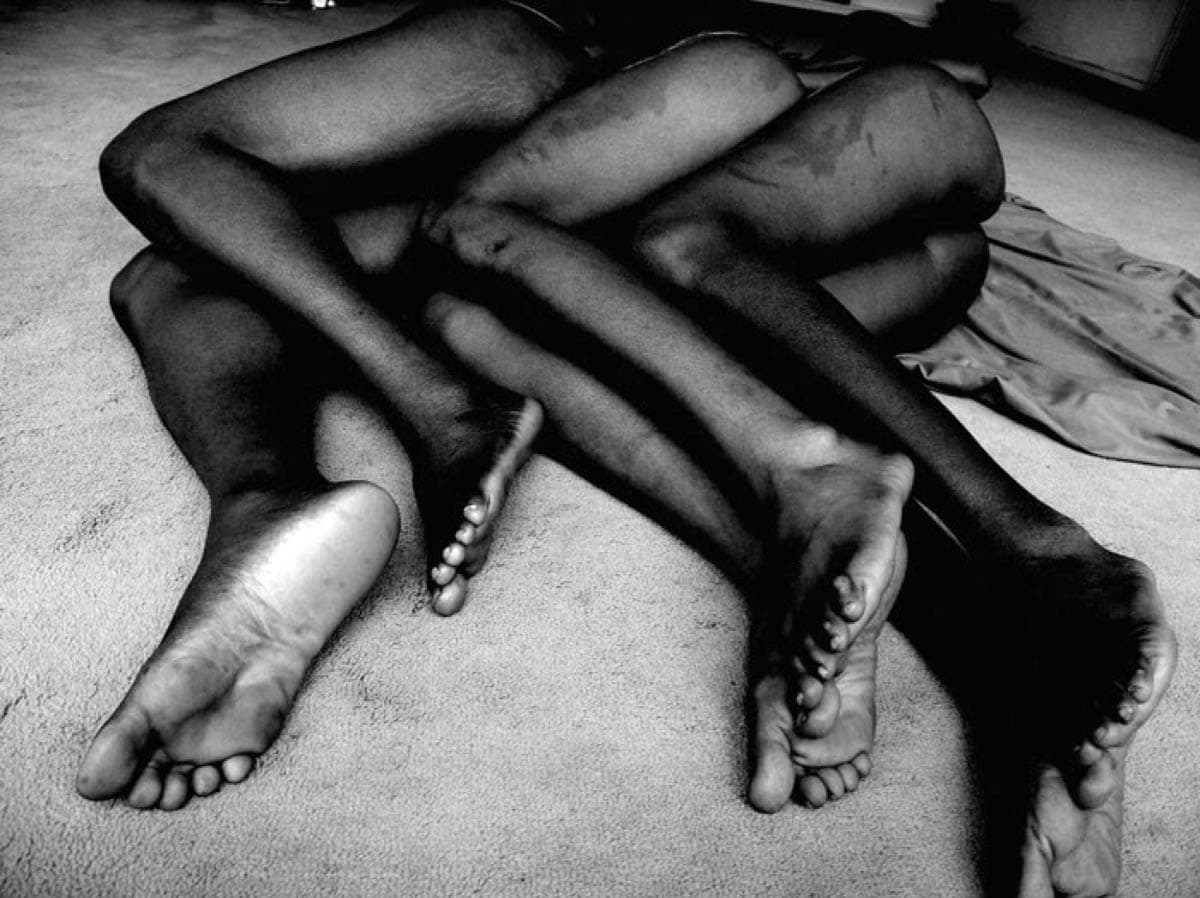
Zanele Muholi entered the world of photography after taking part in the Market Photo Workshop in 2003, a training course aimed at supporting young photographers from disadvantaged backgrounds set up by South African photographer David Goldblatt. A year later, Muholi’s photography was the subject of an exhibition entitled Visual Sexuality at Johannesburg Art Gallery. The body of work, which captures Black, lesbian, and transgender people and practices with enormous sensibility, was without precedent in South Africa — a country that had only recently begun to heal from its severely segregational policies and had long been disconnected from its queer community. Research released in 2017 revealed that despite same-sex marriage becoming legal in 2006, 49% of Black members of the queer community in South Africa are likely to know someone who has been murdered for being LGBT.
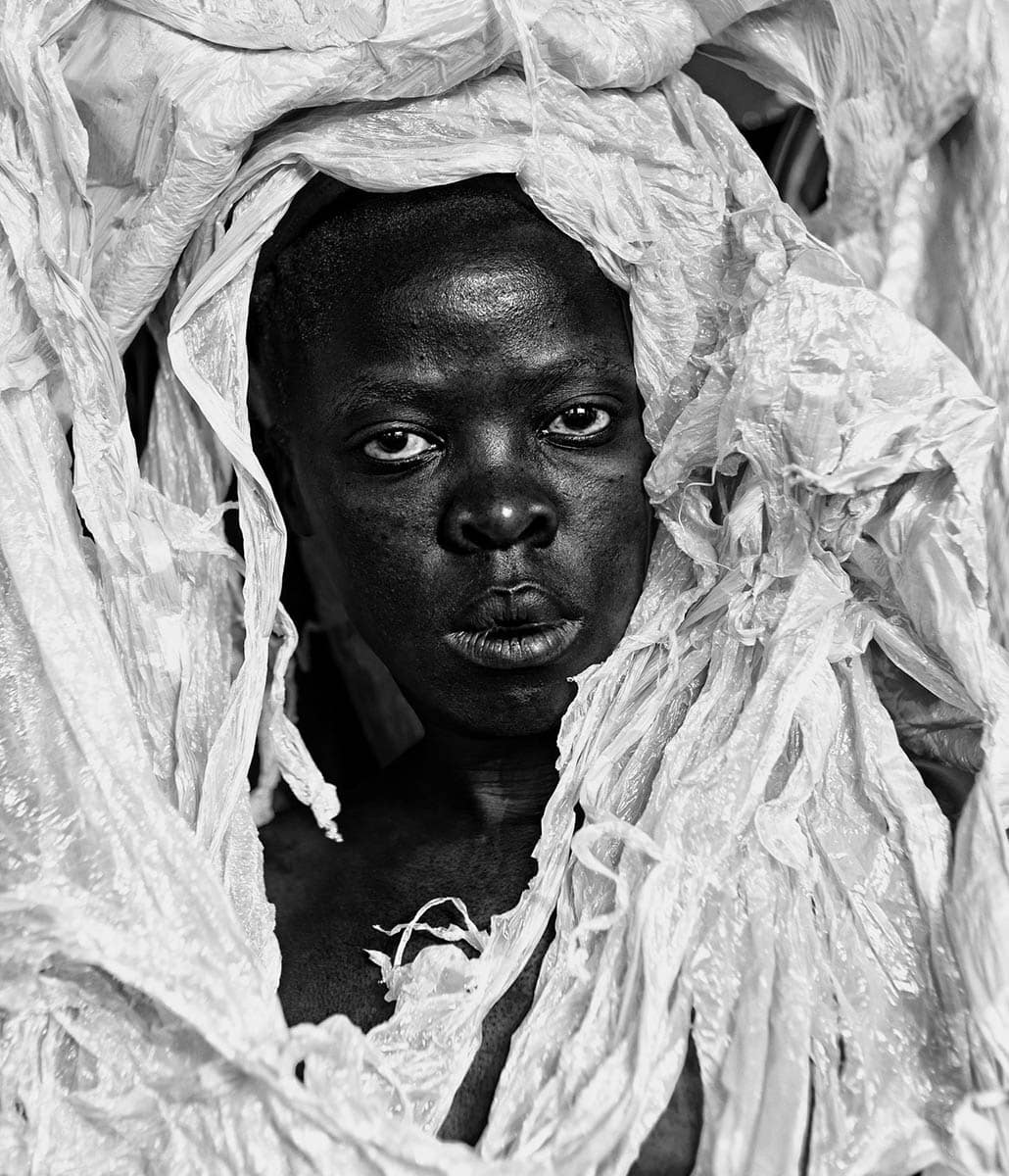
This striking first series set the tone for Muholi’s career and offered a personal perspective on the immeasurable challenges faced by the artist’s community on a day-to-day basis. The series’ dedication to documenting individuals as participants rather than as subjects, and ability to portray the depth and diversity of South African people, swiftly positioned Muholi at the forefront of the contemporary art scene, where they have remained ever since.

In 2014, Zanele Muholi began working on what would become an ongoing series of black-and-white self-portraits entitled Somnyama Ngonyama, or Hail the Dark Lioness. Taken in cities across Europe, North America, Asia, and Africa, each of the 365 portraits represent a day in the year. The arresting photographs challenge stereotypes of the Black woman whilst channeling Muholi’s own lived experience as a queer woman of color. The photographic archive has been the subject of major exhibitions in London, Paris, Berlin, and Umeå amongst others, and was also published as a monograph with written contributions from more than twenty curators, poets, and authors.
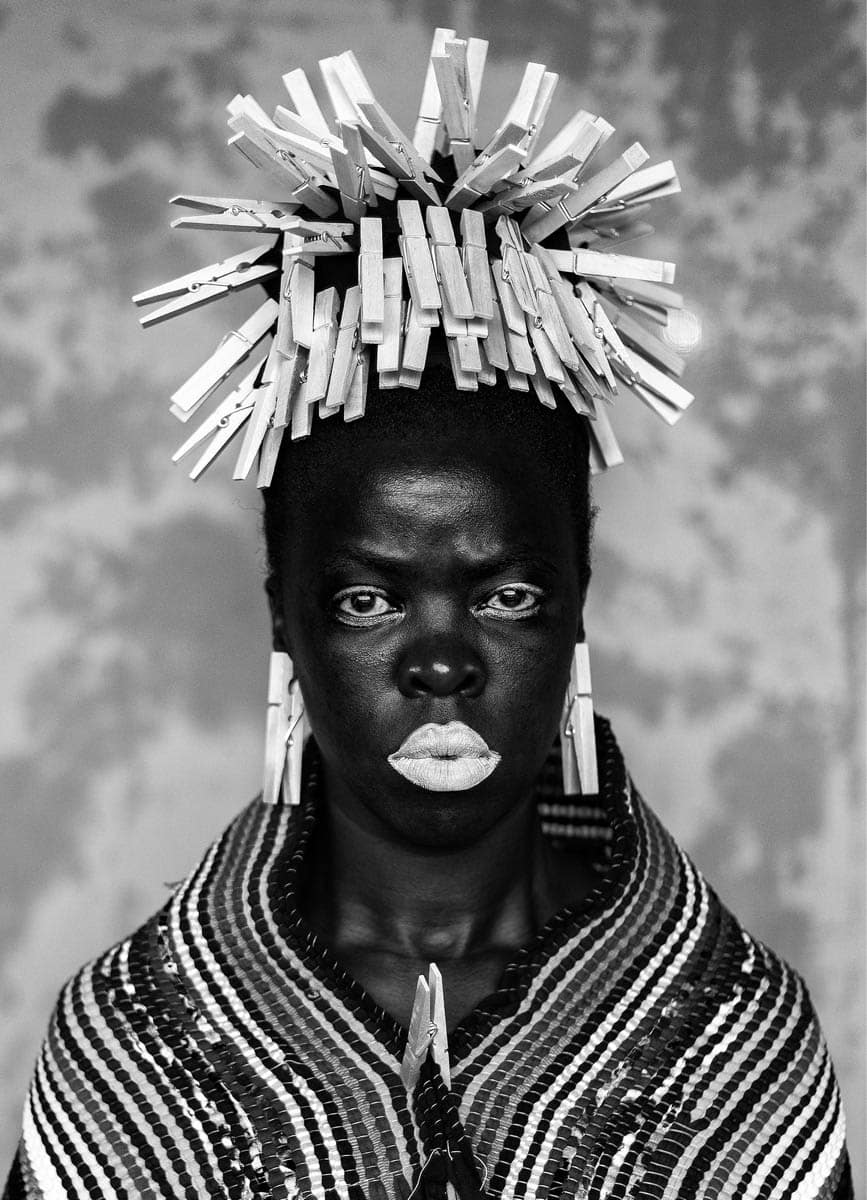
Zanele Muholi acts as both participant and image-maker in Somnyama Ngonyama, using their camera to respond to pressing issues concerning racism, sexism, and homophobia. In each photograph, the artist confrontationally faces the lens, forcing the viewer to stare back. Muholi asks us to question, examine and ultimately challenge our deeply entrenched, biassed view of the world. Who has been excluded from the histories we have been taught? Why have Black women so rarely been part of the narrative? Muholi’s stark expression penetrates the lens, encouraging us to confront the mainstream systems of representations we are surrounded by yet so often forget to question.

By adopting hundreds of alter egos, Zanele Muholi’s psychologically charged Somnyama Ngonyama self-portraits offer a nuanced and multifaceted alternative to stereotypical images and narratives of Black women. The visual activist masterfully refers to elements of classical portraiture, fashion photography, and stereotypical tropes of ethnographic imagery, but there is more to these portraits than their immaculate composition. In each black and white frame, Muholi uses symbolic props taken from their immediate environment to comment on identity politics and the consequences of Eurocentrism.
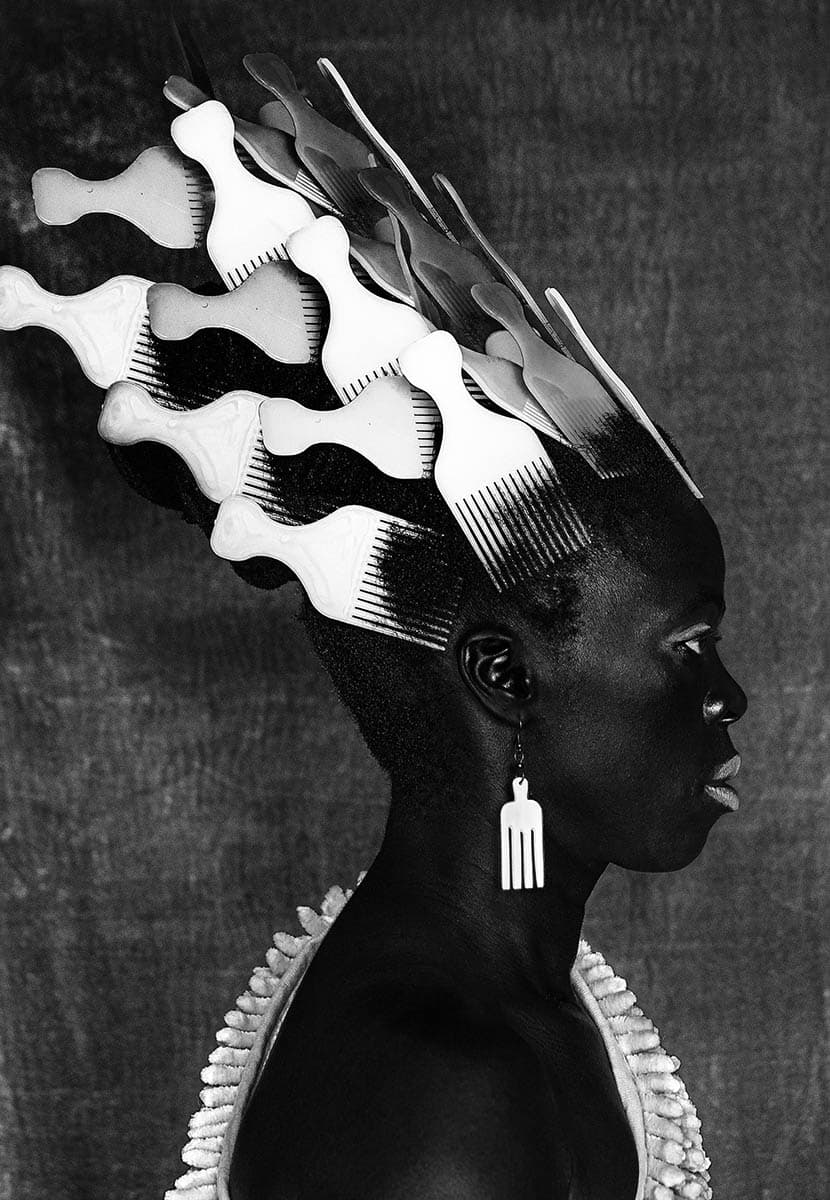
The images depict Zanele Muholi adopting numerous personas by wearing a striking variety of clothing and accessories that highlight the cultural limitations imposed on Black women. What is immediately clear is that the artist has given each prop careful consideration. Muholi decorates themselves with handcuffs, rope, electric wire, and latex gloves, challenging the oppressive standards of beauty that so often tend to ignore people of color.
